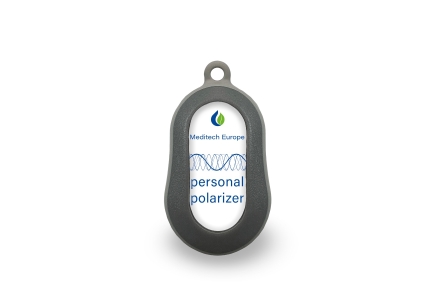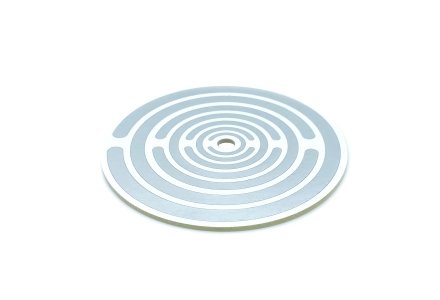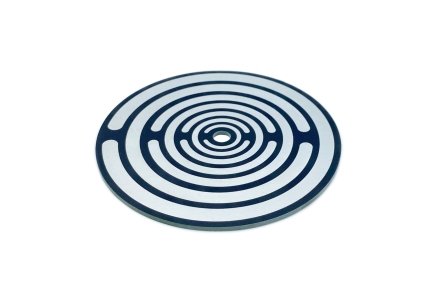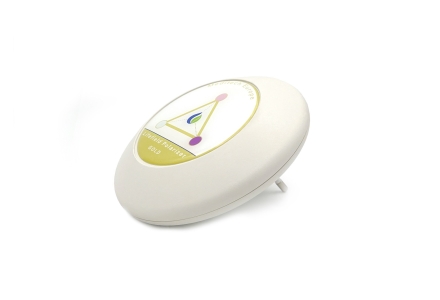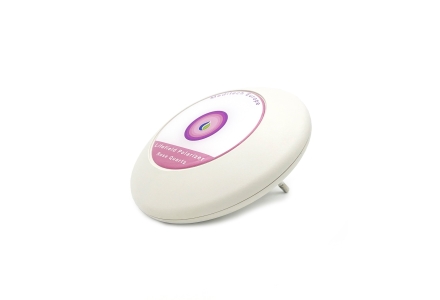
In our quest for stress management, there are several approaches that can help us. One of the powerful methods is meditation, a practice that can lead to inner peace and stress reduction when practiced regularly. This blog explores the world of meditation: what it is, where it comes from and what its purpose is. We also share practical steps to start meditating and cover how meditation can lead to stress reduction. We will also introduce you to Meditech Europe, which is happy to offer advice and support in the field of meditation.
What exactly is Meditation?
Meditation is a practice that has been practiced for centuries and is associated with various spiritual and philosophical traditions, such as Buddhism, Hinduism and Taoism. It is also becoming increasingly popular in secular contexts due to its mental health benefits.
The essence of meditation lies in the awareness and attention you give to yourself, both internally and externally. It is a state of deep concentration and inner peace, training your mind to be in the here and now, without judgment or distraction. Meditation can take different forms, ranging from mindfulness meditation, where you are aware of the moment without judging, to concentration meditation, where you focus on a specific object or thought to calm your mind.
What makes meditation so powerful is that it is more than just a relaxation technique. It is a means of self-discovery, inner growth and exploring the deeper layers of consciousness. By meditating regularly, you can not only reduce stress and experience a sense of calm, but also gain greater insight into your thoughts, emotions and the nature of your consciousness.
In essence, meditation provides a path to inner peace, self-knowledge and well-being, and it can be a valuable addition to anyone's lifestyle today, regardless of background, beliefs or goals.
What is the Origin of Meditation?
The origins of meditation can be traced back to ancient traditions and cultures around the world. Different forms of meditation originated in different religious and philosophical traditions, and each has its own unique approach and purpose. Below we will list some of the most important sources of meditation:
Hinduism: Meditation in India has a long history dating back to the Vedic period, more than 5,000 years ago. In the Hindu tradition, meditation techniques have been developed that focus on spiritual growth, self-realization and enlightenment. For example, Yoga Sutras of Patanjali, an ancient Hindu text, describe techniques for concentration and meditation as part of the eightfold path of yoga.
Buddhism: Meditation plays a central role in Buddhism, which originated in India about 2,500 years ago. Siddhartha Gautama, the Buddha, developed various meditation techniques as a means of enlightenment and liberation from suffering. Forms of meditation such as mindfulness meditation, concentration meditation and vipassana meditation are important practices within Buddhism.
Taoism: Within Taoism, a Chinese philosophical and spiritual tradition, meditation is practiced as a way to come into harmony with the natural flow of the universe (Tao). Tai chi, a form of moving meditation, and seated meditation are used to promote inner balance, health and spiritual development.
Religions: Also within the world religions there are meditative practices and prayer techniques that are used for spiritual growth, contemplation and connection with the Divine.
It is important to note that meditation is not exclusive to religious traditions; it is also increasingly practiced in secular contexts as a means of stress reduction, self-development and mental health improvement. Contemporary meditation practices often combine elements from different traditions and are adapted to modern needs and circumstances.
Meditation: Also applicable today
In modern times, various meditation techniques are used, both within traditional spiritual contexts and in secular settings. Here are some common meditation techniques that are currently popular:
Mindfulness meditation: This technique focuses on awareness of the present moment without judgment. You observe your thoughts, feelings, physical sensations and the environment around you without clinging to them or reacting. Mindfulness meditation is often used for stress reduction, emotional balance and improving general well-being.
Concentration meditation: In this technique you focus your attention on a specific object, such as your breathing, a mantra, a candle flame or a visualization. The goal is to train the mind to stay focused and reduce distracting thoughts. Concentration meditation helps develop concentration, mental clarity and inner peace.
Vipassana meditation: This meditation technique focuses on insight and self-realization. It means 'insight meditation' and involves observing your thoughts, feelings and sensations without clinging to them. Vipassana meditation encourages deeper understanding of the nature of the self and reality.
Transcendental Meditation (TM): This technique involves repeating a specific mantra to calm the mind and achieve deeper awareness. TM focuses on experiencing transcendent states of consciousness and inner peace.
Zen meditation (Zazen): This is a form of meditation from the Zen Buddhist tradition. During Zazen you sit upright and focus on your breathing and your physical posture. The goal is to connect directly with the here and now, without concepts or mental distractions.
In addition, modern meditation practices and guided meditation sessions are available through apps, online platforms and meditation groups. These may combine or adapt different techniques to meet the needs and preferences of individuals. It's important to explore and experiment with different techniques to find what suits you best and what gives you the benefits you want.
Meditation and Stress: A Natural Remedy for Stress Relief
Meditation is recognized as a natural and effective means of stress relief and promoting emotional well-being. Practicing meditation can be a powerful way to reduce the negative effects of stress on the body and mind.
One of the primary effects of meditation is to calm the mind. By focusing on your breathing, a mantra, or your current experience without judgment (mindfulness), you create an inner peace that can reduce stressful thoughts and emotions.
In addition, meditation activates the parasympathetic nervous system, which is responsible for the relaxation response in the body. This can lead to a lower heart rate, blood pressure and muscle tension, making you feel more relaxed physically and mentally. Meditation also reduces cortisol levels in the body. Cortisol is a hormone associated with stress responses in the body. Studies have shown that regular meditation can lower cortisol levels, which reduces stress levels overall.
Furthermore, Meditation helps develop skills for emotional regulation and self-awareness. By being aware of your thoughts and feelings without getting carried away by them, you can better respond to (future) stressful situations with more calmness and clarity.
And finally, by meditating regularly, you develop resilience to stress. This means you are better able to handle challenging situations without becoming overwhelmed, increasing your resistance to stress.
The great thing about meditation for stress relief is that it is a natural and accessible practice that can be practiced by anyone, regardless of age, background or physical condition. It requires no special equipment and can be done anywhere, making it a useful tool in everyday life for promoting well-being, balance, equilibrium and coping with stressful situations.
Some Steps You Can Take to Start Meditation
Starting with meditation can be a valuable step towards inner peace, concentration and well-being. Here are some steps and tips to start meditating:
Choose a suitable time and place: Find a quiet and comfortable place where you will not be disturbed. Choose a (fixed) time of the day that works for you, such as early in the morning, during the lunch break or in the evening before going to bed.
Sitting position: Choose a sitting position that is comfortable for you. This can be on a cushion on the floor, on a chair with your feet firmly on the floor or even lying down if that is more comfortable for you.
Breathing: Start by becoming aware of your breathing. Breathe in slowly through your nose and feel how your stomach and chest expand, and then breathe out gently. Let your breathing be natural and relaxed, without forcing it.
Choose a focus: Choose a focus point for your meditation. This could be your breathing, a mantra (repeated word or sound), a visualization, or simply awareness of the present moment without focusing on anything specific (mindfulness).
Start with short sessions: Start with short meditation sessions of, for example, 5 to 10 minutes to get used to the practice. You can gradually increase the duration as you gain experience.
Be patient and gentle with yourself: It is normal for your mind to wander during meditation. Simply notice when you become distracted and gently bring your attention back to your point of focus (e.g. your breathing). Don't be hard on yourself; meditation is about cultivating kindness and acceptance, including for your own thoughts and experiences.
Regularity is more important than duration: It is more effective to meditate regularly, even if only for a few minutes a day, than to do long sessions every now and then. Try meditating daily to experience the benefits.
Guided meditations: As a beginner you can also use guided meditations. These are recordings or apps that guide you through a meditation session and help you maintain focus.
Explore different techniques: Try different meditation techniques to discover what suits you best.
Learn from the experience: After each meditation session, take a moment to reflect. Notice how you feel and what you experienced during the meditation. This will help you develop and adapt your meditation practice to your needs.
With consistent practice and an openness to the experience, you can discover the benefits of meditation and integrate a valuable tool for inner growth, wellness, and stress management into your life.
Which products can support Meditation
Meditech Europe offers many products that can contribute to harmony and balance in order to optimize the living environment in which you meditate. Consider, for example:
- Polarizer Plates
- Personal Polarizers
- Life Field Polarizes
- Lakhovsky Polarizer Systems
- resonance jewelry
- Multiwave Oscillator
Conclusion
Meditation can play a valuable role in managing stress and promoting well-being. By meditating regularly, you can cultivate inner peace and tranquility, build emotional resilience, and learn to cope better with stressful situations. Meditation can be considered a natural tool to calm the mind and promote healthy balance in modern life full of challenges.
When integrating meditation into your daily routine, there are products from Meditech Europe that can support this by contributing to the harmony and balance of your living environment. Meditech Europe is ready to advise you about these products and meditation. For more information and questions, please contact info@meditecheurope.nl or +31527 292 331.
FAQ
What is the purpose of meditation?
The purpose of meditation is to promote inner peace, mental clarity and emotional well-being. It involves cultivating awareness, concentration, self-understanding and the ability to cope with stress and challenges. In general, meditation contributes to a healthy mental state and a better quality of life.
How does meditation help with stress?
Meditation helps with stress by calming the mind, lowering cortisol levels, promoting relaxation, improving emotional regulation and building resilience to stress.
